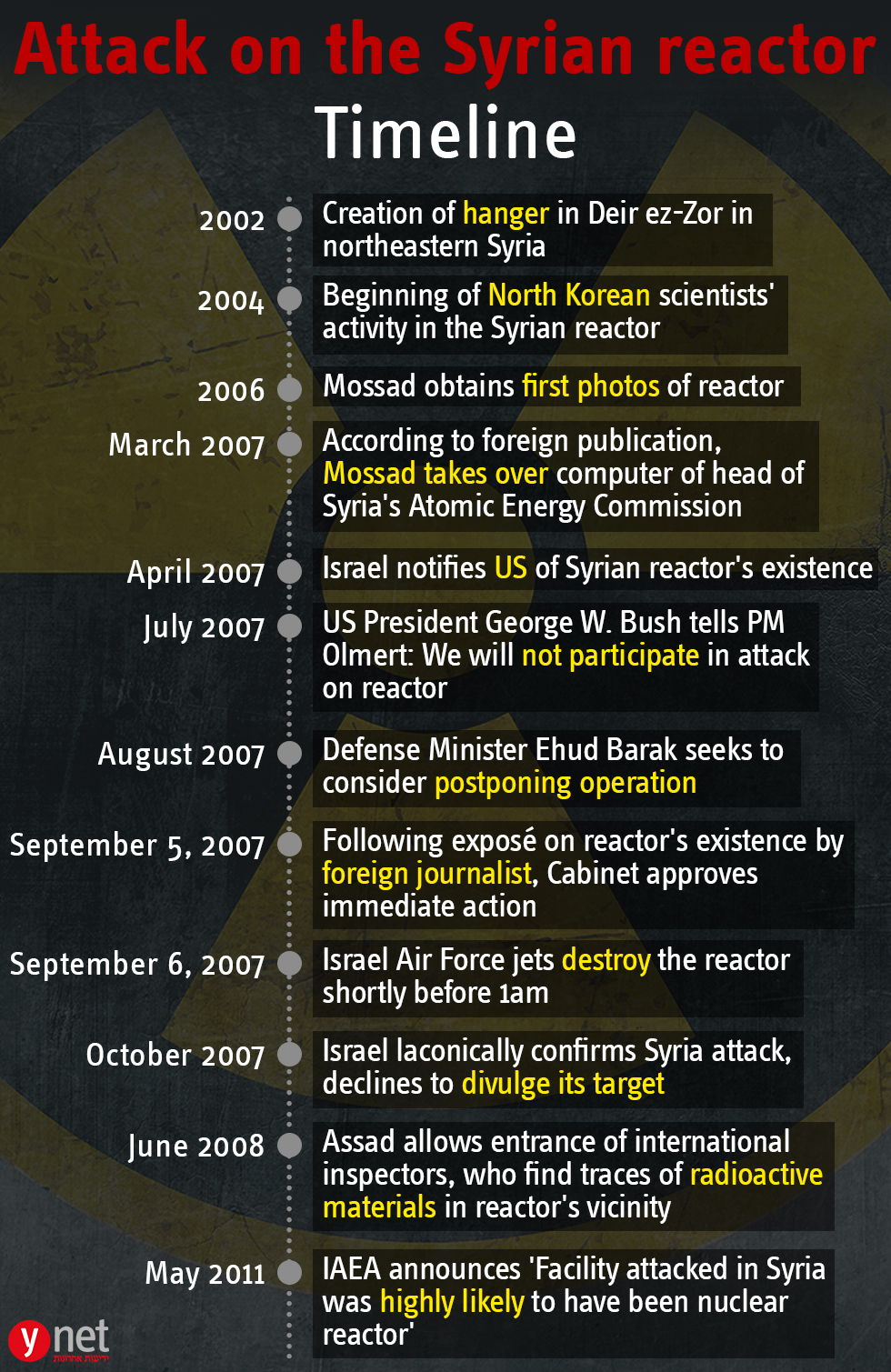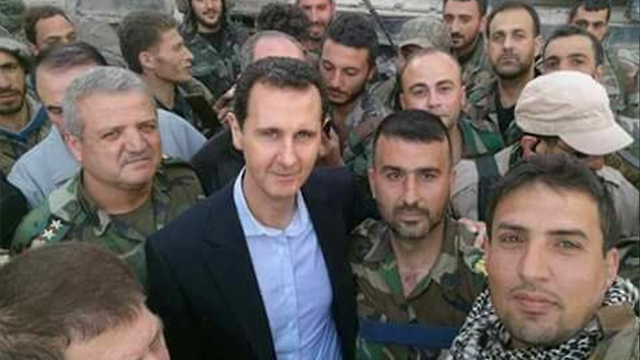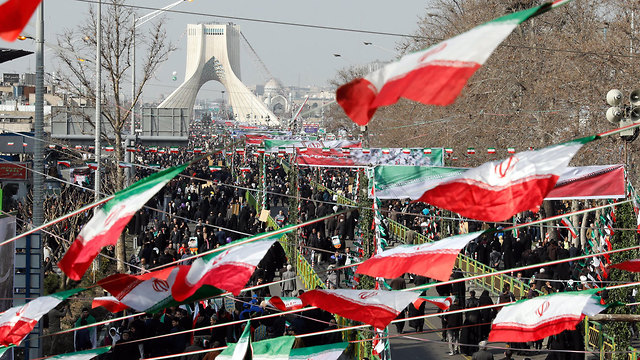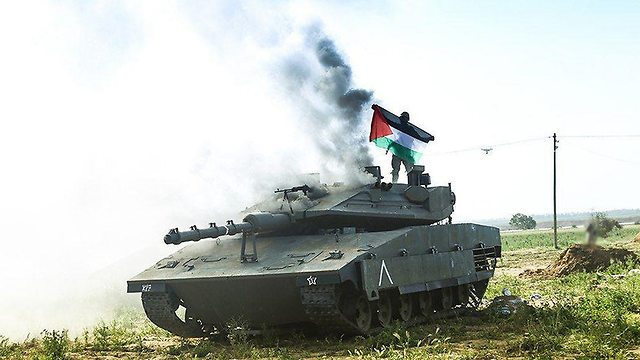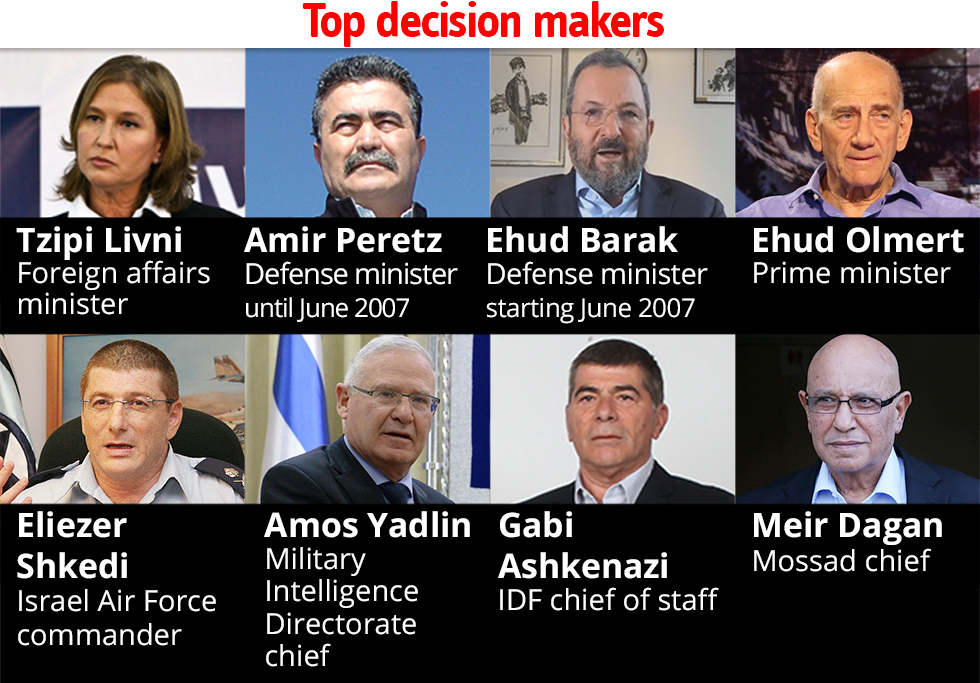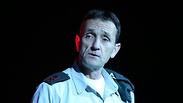
MID chief on Syrian reactor: 'Improper to present success as failure'
Speaking at Yedioth Ahronoth, Ynet conference on recent public spat with Mossad and its former chief Pardo, Maj.-Gen. Herzi Halevi says 'Even if process could have gone better, end result would have been the same'; sending stern message to Iran, Halevi says 'correcting its behavior will not be achieved in negotiation rooms.'
Head of the IDF's Military Intelligence Directorate (MID) Maj.-Gen. Herzi Halevi provided his first public comment on the split with former Mossad head Tamir Pardo, who claimed that the late discovery of the Syrian nuclear reactor in 2007 was an abject intelligence failure, saying it was "improper to present success as failure."
"MID has a strategy of partnerships, and we don't have the privilege of working alone. Even after removing the blackout, I'm proud MID is at an all-time flourish—with Israel's citizens as benefactors," Halevi said, speaking Sunday afternoon in a conference organized by Ynet and Yedioth Ahronoth to celebrate 70 years of Israeli success.
"Disagreements have always existed and will continue to do so, and we'll be all the richer for it. It is, however, improper and unfair to take a successful result and present it as an alleged failure," he protested.
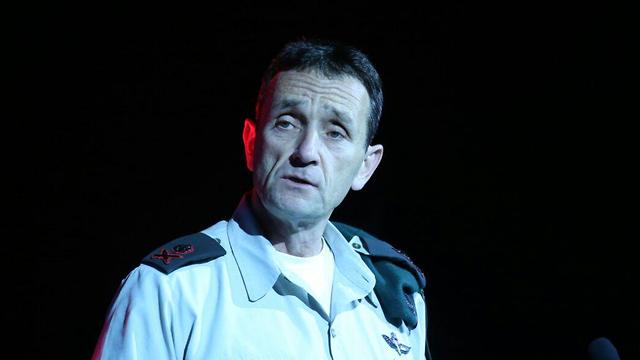
“It was only thanks to this information that the State of Israel had the knowledge that there actually was a reactor in Syria," Tamir Pardo said at the Netanya Academic College, noting that the information had been received more than five years after Syria had started building the reactor.
"On the one hand, there was a spectacular failure here. We're lucky that a handful of fighters managed to bring this information which no one knew existed. We're very lucky," he stressed.
According to Pardo, the Mossad was placed in “the shadow of a shadow” for reasons relating to censorship.
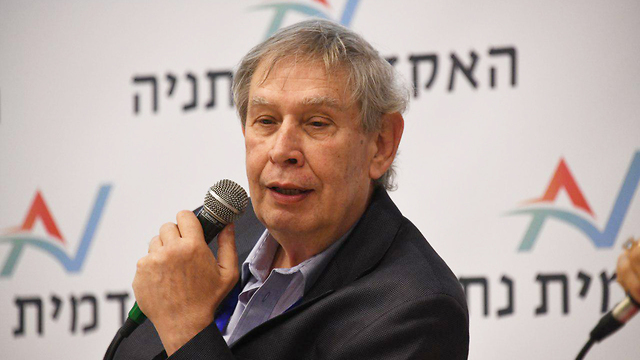
MID chief Halevi provided his own take on the reactor and its destruction Sunday, saying, "Knowing what happened then, everyone did their part and there are certainly lessons to draw from it. Even if the process could have gone better, the end result would have been the same.
"As intelligence, our natural inclination will be not to divulge and some details will hopefully remain obscure. Those who know on the other side are deterred, and I presume that censors' considerations were topical and sound."
Maj.-Gen. Halevi commented at the beginning of his speech on the Islamic State's activities and Iran's influence on the region, saying, "The Islamic State has not disappeared in 2018, it's transforming. We've seen an example of that this past weekend in France.
"The region's chief formulator will be Iranian activity, and the countermeasures to said action. There's also the issue of the drone, which may well tell the entire story—the Iranian military complex that knows how to take an American drone and clone it," he added.
"The drone was not intended to protect (Syrian President) Assad's regime, it was sent into Israel's territory and its intentions are most likely not positive," he further expounded.
"Not everyone perceives Iran's hidden intentions for dominance in the Middle East. We share (our) information so that they do. We make an effort to explain, but not everyone who has got it is doing something about it. Israel has cautioned, is active—our neighbors understand that well and the world is gradually doing so," Halevi said.
'Israel has no belligerent intentions towards Lebanon'
Speaking on Hezbollah, the MID head said it was "continuing to procure Iranian-made strategic weapons. The Lebanese leadership claims it's defending Lebanon from Israeli aggression, but Israel has no belligerent intentions towards Lebanon."
Differences between Israel anfd Lebanon, he continued, are small and they may be bridged. "The state of Lebanon must consider its economy—one of the largest in the region—and not Iran or Hezbollah's interests," he said.
Circling back to Syria and Iran, Halevi said, "Throughout the fighting in Syria we have maintained a policy of non-intervention—only humanitarian intervention. Iranian entrenchment (however), is threatening to tip that balance and the world's efforts to stabilize Syria. Iran is sending a Shi'ite arrow that is ripping the Sunni Middle East asunder."
Further on the Islamic republic, the intelligence head said that "beyond problems with the nuclear issue and under the auspices of the agreement it reached, it's bolder—in both rockets and propping up terror in our region.
"Iran is in distress and does not seek investments too far away, instead seeking to improve its internal situation. This is the best opportunity since the signing of the (nuclear) agreement to correct its behavior. This change will not be achieved in negotiations rooms but will necessitate a crisis—economic, political or otherwise. The more united the front the world presents, the better the prospects of change are."
The intelligence service's head then went on to speak on the defense establishment's handling of the possibility of Palestinian terrorism. "Potential conflagration in the Palestinian arena will be less destructive, but inhibitors in that area have weakened," he continued.
"This coming May encompasses three significant factors: the West Bank has signs of increasing complexity surrounding (Israel's) 70th Independence Day, but May also contains Nakba Day and the beginning of Ramadan, both of which entail increased combustibility," he warned.
"When we examine the Palestinian outlook, there are expressions of frustration among the public," he added. "During this period, unyieldingly combating terror is greater than ever, (but) we must distinguish between civilians and terrorists and preserve security mechanisms and ties for the post (Palestinian Authority President Mahmoud Abbas) era.
"Hamas is in a nadir at the moment, with both civil and infrastructural crises. Hamas is running into Iran's arms and must under understand that doing so will only exacerbate things."
In his previous statements, Mossad chief Pardo lamented a "war of egos" in light of the operation's success. "The problem, usually, with successful operations is that Jewish or Israeli intellect tries to take the success and begins an exceptionally ugly war of egos. But that seems to be our character and everyone tries to dwarf the other. I think that then-Prime Minister Ehud Olmert did exceptional work as a leader of the state and in bringing its abilities to the fore at the right moment."
While Pardo made no specifics references to competing intelligence bodies, it appears some friction may have developed with the IDF's Military Intelligence Directorate.
Former head of MID, Amos Yadlin, told Ynet last week that, "intelligence is a puzzle. To get an intelligence picture you need to connect a thousand pieces. Some of them come from human intelligence, some from satellites and eavesdropping. In 2006, in MID, and not in any other place, a young major came and said, 'Head of MID, there's suspicion of a nuclear program in Syria.'
"When I first became head of MID in January 2006, I said to them, 'Friends, please check all the states in which there is no logic in them having a nuclear program and whether there is a nuclear program.' Regarding Syria, the assumption was that it didn't have any nuclear infrastructure, that it had no abilities, that it was occupied with other things and that the strategic balance with Israel was achieved by heavy chemical weapons," Yadlin said.
"Then in the summer of 2006, the same young major comes to me and says 'Amos, I am not sure. I have 50 pieces out of 1,000.' A part of a picture about some strange building that MID pointed to first, no one else," Yadlin emphasized again.
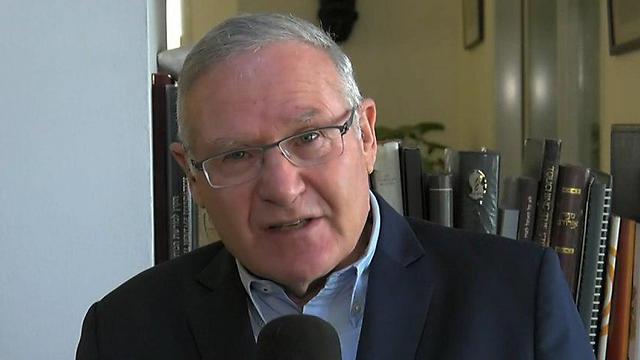
"Logic said after 1981 that no one would create a reactor, and the Syrians and North Koreans pursued a very interesting program that no one had thought of at the time—to build a large hangar that resembled an agricultural building and a storage site, inside which they would build a reactor that a satellite was unable to detect, to hide it without anything protecting it."
The "exceptional" Mossad operation the MID chief referred to was copying photographs and documents relating to the reactor from the computer of a high ranking Syrian official during a Vienna conference, according to foreign publications.
"Despite many in that same organization (Mossad)—including the head thereof—who said, 'Nothing of the sort, where did you come up with that idea?' but to their credit, they filled in 500-600 pieces of the puzzle's thousand pieces, with some serious intelligence challenges remaining."










